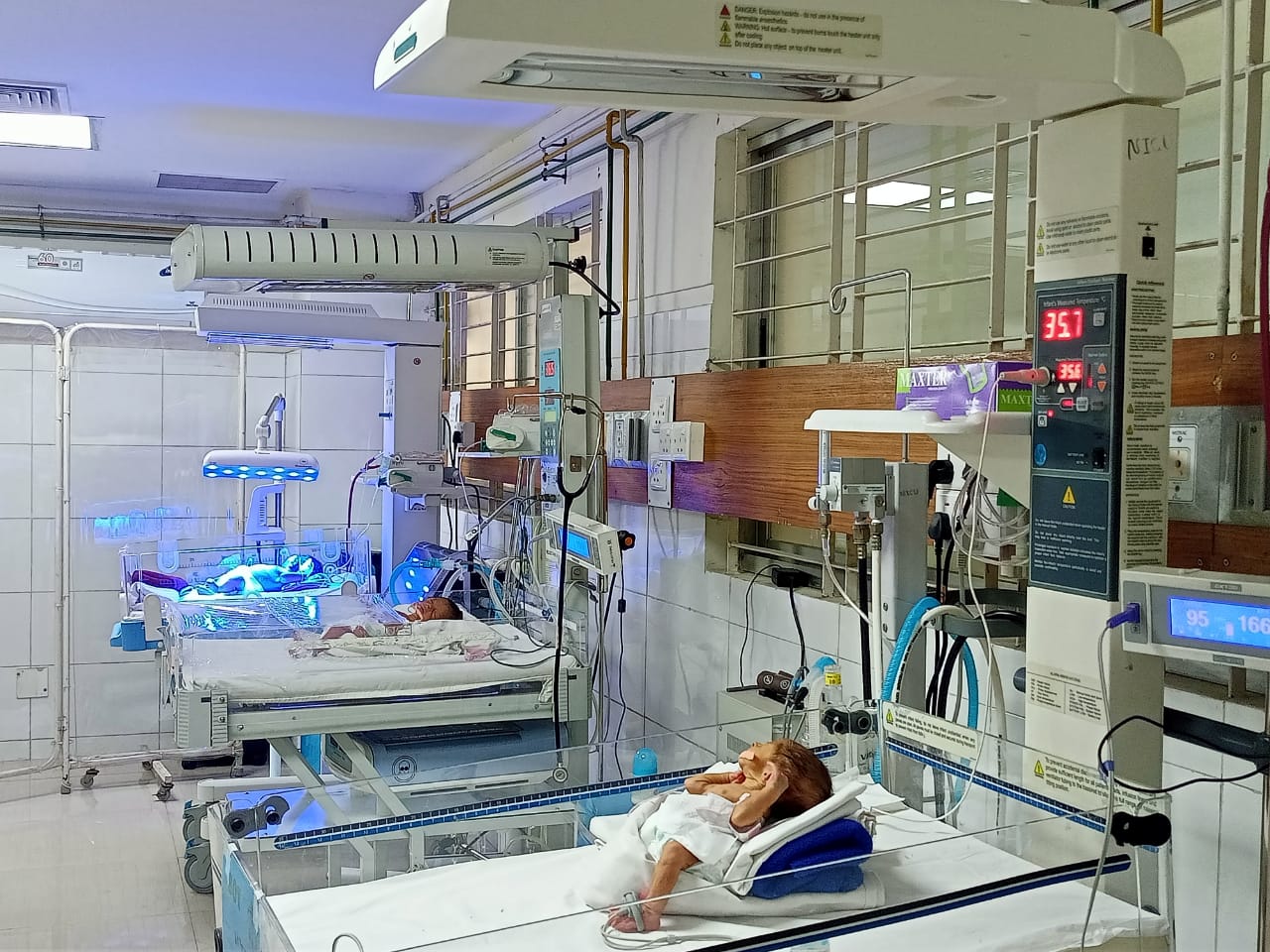Most babies admitted to the NICU are preterm (born before 37 weeks of pregnancy), have low birth weight (less than 5.5 pounds), or have a health condition that needs special care. In the U.S., nearly half a million babies are born preterm. Many of these babies also have low birth weights. Twins, triplets, and other multiples often are admitted to the NICU. This is because they tend to be born earlier and smaller than single birth babies. Babies with health conditions such as breathing trouble, heart problems, infections, or birth defects are also cared for in the NICU.
Below are some factors that can place a baby at high risk and increase the chances of being admitted to the NICU. But each baby must be assessed to see if he or she needs the NICU. High-risk factors include the below.
Maternal factors include:
- Being younger than age 16 or older than age 40
- Drug or alcohol use
- Diabetes
- High blood pressure (hypertension)
- Bleeding
- Sexually transmitted diseases
- Multiple pregnancy (twins, triplets, or more)
- Too little or too much amniotic fluid
- Premature rupture of membranes (also called the amniotic sac or bag of waters)
Delivery factors include:
- Changes in a baby’s organ systems due to lack of oxygen (fetal distress or birth asphyxia)
- Buttocks delivered first (breech birth) or other abnormal position
- The baby's first stool (meconium) passed during pregnancy into the amniotic fluid
- Umbilical cord wrapped around the baby's neck (nuchal cord)
- Forceps or cesarean delivery
Baby factors include:
- Baby born at gestational age of less than 37 weeks or more than 42 weeks
- Birth weight less than 5 pounds, 8 ounces (2,500 grams) or over 8 pounds, 13 ounces (4,000 grams)
- Small for gestational age
- Medicine or resuscitation in the delivery room
- Birth defects
- Respiratory distress including rapid breathing, grunting, or stopping breathing (apnea)
- Infection such as herpes, group B streptococcus, chlamydia
- Seizures
- Low blood sugar (hypoglycemia)
- Need for extra oxygen or monitoring, IV (intravenous) therapy, or medicines
- Need for special treatment or procedures such as a blood transfusion
We provide treatment and support to critically ill premature and full-term babies.
We are committed to work with parents to provide the best possible outcome for the newborn. We offer a comfortable environment and support from childbirth and help in breast-feeding your baby.
The NICU combines advanced technology and trained health care professionals to provide specialized care for the tiniest patients. NICUs may also have intermediate or continuing care areas for babies who are not as sick but do need specialized nursing care.

